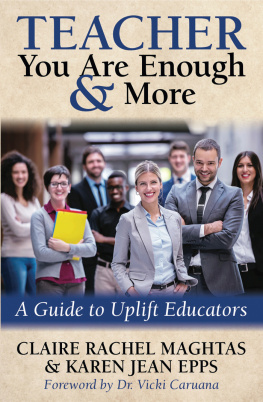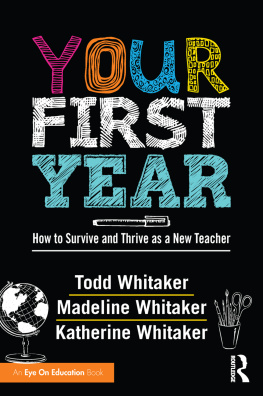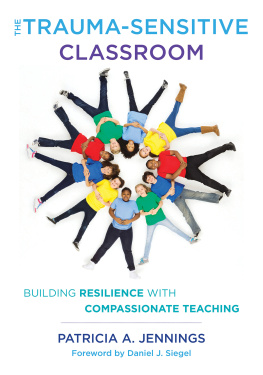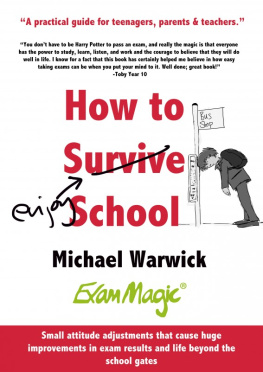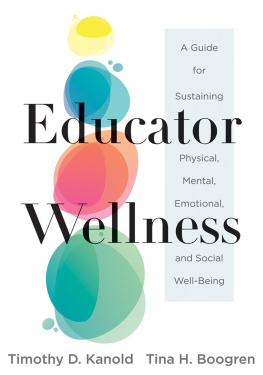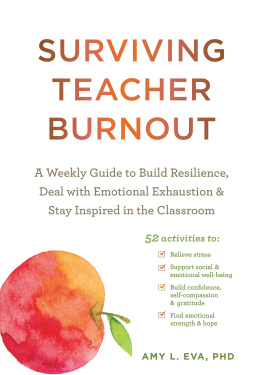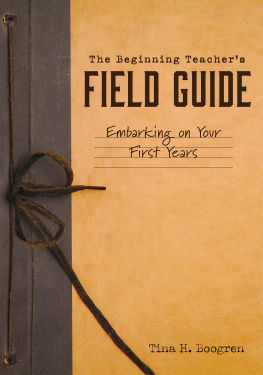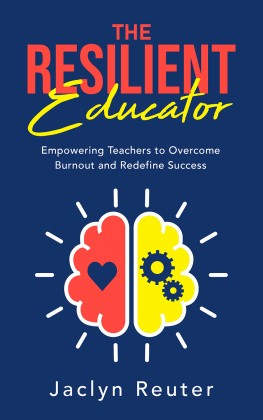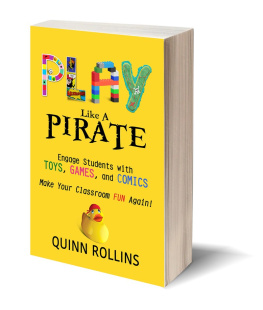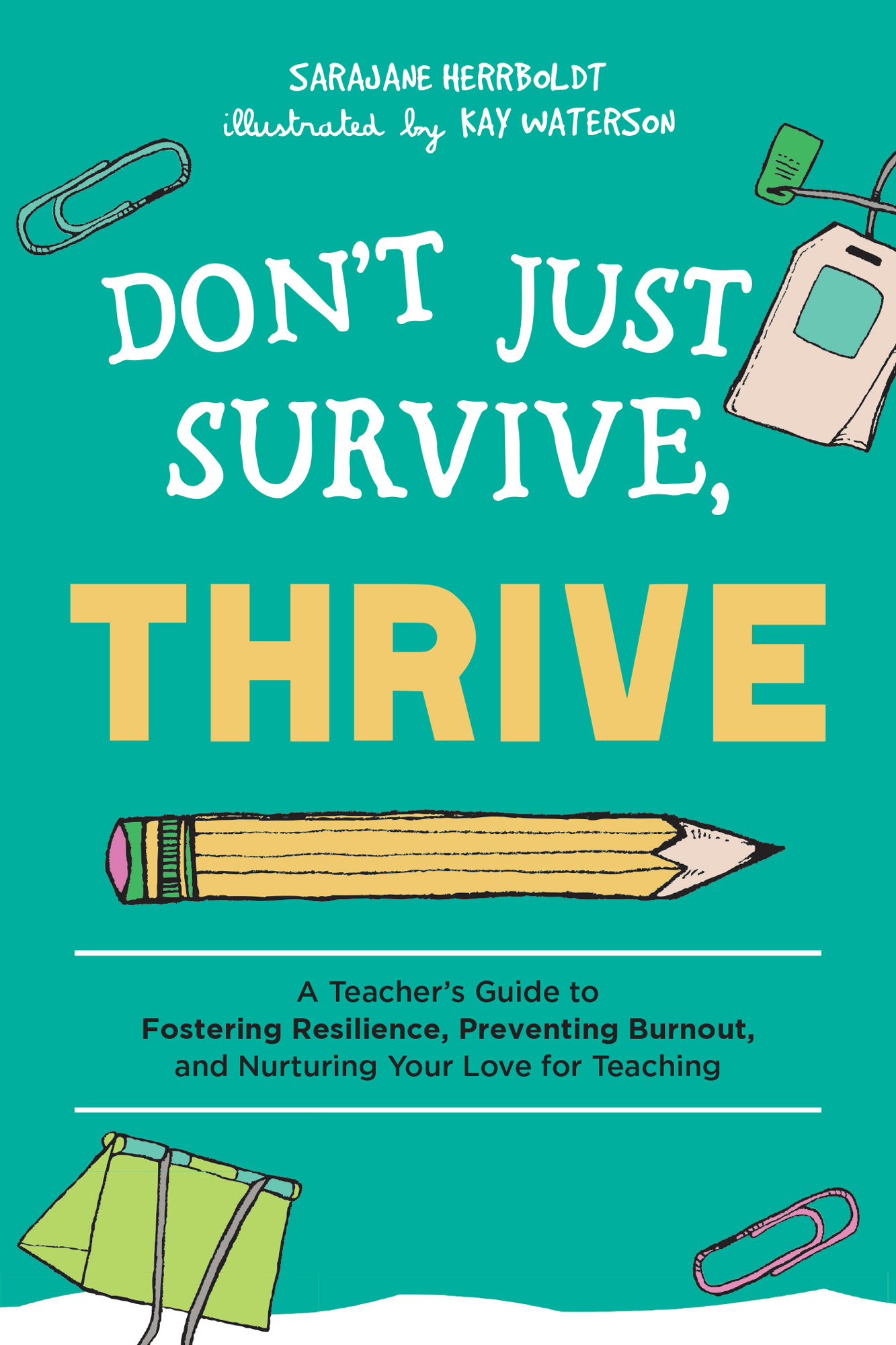CONTENTS
Guide
Text copyright 2021 SaraJane Herrboldt. Design and concept copyright 2021 Ulysses Press and its licensors. All rights reserved. Any unauthorized duplication in whole or in part or dissemination of this edition by any means (including but not limited to photocopying, electronic devices, digital versions, and the internet) will be prosecuted to the fullest extent of the law.
Published in the US by:
ULYSSES PRESS
PO Box 3440
Berkeley, CA 94703
www.ulyssespress.com
ISBN: 978-1-64604-082-7
ISBN: 978-1-64604-083-4 (Ebook)
Library of Congress Control Number: 2020935670
Acquisitions editor: Casie Vogel
Managing editor: Claire Chun
Editor: Debra Riegert
Proofreader: Renee Rutledge
Front cover design: fiverr
Artwork: Kay Waterson except quote backgrounds on chyworks/shutterstock.com
Interior design: Jake Flaherty
NOTE TO READERS: This book is independently authored and published. No endorsement or sponsorship by or affiliation with copyright and trademark holders is claimed or suggested. All references in this book to copyrighted or trademarked products are for the purpose of commentary, criticism, analysis, and literary discussion only.
INTRODUCTION
Throughout my career in education, Ive encountered a lot of incredible human beings doing the good, important, and hard work of educating. Some of these individuals stood out as exceptional, so I started to ask what set them apart from the rest and what kept them committed to the profession. I soon realized that the answers to these questions are not necessarily one and the same.
This book is written from both my personal and professional experience. Shortly before I began my career, I imagined the celebration and praise that would come from the commitment and longevity I would offer students and schools. Never did I anticipate that my final years working within a school would become some of the most painful to navigate.
During my last year, I encountered not one, not two, but three people who had to take a leave of absence due to high levels of workplace stress and its impact on their health and well-being. I didnt work with a large staff. These were individuals I cared for and shared day-to-day interactions with on a regular basis. In the course of one year, they were pushed to their limits over and over again and reached what felt like a breaking point. I felt so limited in what I could do to support them. No changes made to the educational system were significant enough to sustain them doing the work. Instead, the necessary relief came from stepping away from their job for the time being, and for some of them, permanently.
I continue to hear from many other educators who find themselves at the end of their rope. Many feel as though they are on the verge of something that feels more uncomfortable than comfortable. That shouldnt be the way we support our educators.
The Problem: Burnout
It is a commonly known fact that 30 to 50 percent of educators leave the profession within their first five years of teaching due to workplace stress and burnout. While this is not a recent discovery, we have done little to shift how we approach the problem. The word burnout is thrown around a lot, but it is not always taken seriously. Perhaps that is because we tend to view it as an individual problem rather than a community problem.
We also know that students show up in our classrooms with more than just academic needs that we as educators often feel obligated to address. Oftentimes, these needs are connected to a struggle or trauma that a student is encountering. When we intentionally put ourselves in close proximity to another individuals struggle and trauma, we run the risk of experiencing some trauma ourselves. We must begin to have honest conversations with ourselves, our colleagues, our administrators, school boards, and lawmakers to address how workplace stress and burnout impact educators. If we do not begin to have such conversations, we may soon experience a crisis due to a shortage of educators who are willing to work in such demanding conditions.
Without caring, committed, professional educators, who will facilitate the learning of the next generation?
Much like we want to safeguard children from the many potential harms of the world that bring danger, pain, and grief, we need to consider what it might look like to offer ourselves a similar practice of safeguarding. Can we protect children from every potential harm? Unfortunately, we cannot. Can we guarantee that our adult life will be absent of disappointments, challenges, and stress? Absolutely not. However, what we can give children and ourselves is the courage to face a challenge and move through it with coping strategies that help us repair, recover, and perhaps even improve.
How Do We Not Just Survive, but Thrive?
When I encounter a new challenging situation, I am eager to discover and learn any applicable content I can to help me resolve the problem. I jump into the deep end, and my passion grows as I continue to learn. I want to take it all in and find a workable solution as quickly possible. However, time and time again, I get busy and then my attention grows fragmented. I become overwhelmed or shift back into old habits of being and thinking. When that sense of urgency creeps up again, I repeat this pattern and somehow expect a different outcome. Is this familiar to anyone else?
Over the years, after a lot of reflection and failed attempts, I realized that if I wanted a different outcome, I needed to respond in a different way. Rather than trying to make all of the mental, emotional, and physical lifestyle changes at one time, I needed to be more deliberate and intentional with an ongoing daily practice of shifting the little things. The change I was seeking for myself was less about a one-and-done situation. Instead, subtle shifts and a sustained intentional effort would bring about greater change and help me broaden my capacity to be resilient and deepen my overall sense of well-being.
What would it look like to be proactive rather than reactive in our day-to-day lives and throughout the course of a school year? What would it look like to support educators and their well-being before they reached a tipping point that potentially led to their breaking point? What would it look like to allow teachers to take a sabbatical, similar to other professions, to help them recharge, rejuvenate, and learn without being overwhelmed?
By no means do I hold all the answers or have the magic solution to make it right or better. Disappointing, I know. But just like you, I am an educator. My work as an educator has been some of the most rewarding and challenging work Ive ever done. Ive been a classroom teacher for students in preschool through 2nd grade, and have provided support services to students spanning kindergarten through 12th grade, in my work as a district coordinator. I have spent plenty of time fretting over whether or not my lesson plans were good enough and met all the necessary requirements, or if my students felt connected enough to engage in learning. I continually worried about whether or not I could get it all done. I did not want to fall short and let down my students, their families, or my colleagues. I often questioned how much time was an acceptable amount to take away from my own children and partner in order to make my instruction better. I wondered if I was alone in fretting about these things and continually thinking I wasnt doing enough. So, I started to dive into research surrounding the field of education. I wondered what the life of a teacher might look like if we reimagined the way we support our educators so they could feel as though they were thriving instead of simply surviving.


